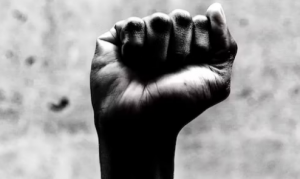Kwanzaa, a holiday that affirms African families and social values, is predominantly celebrated in the United States. It starts the day after Christmas and lasts for a week till January 1.
History
The holiday was created by Dr. Maulana Karenga, professor and chair of the department of Africana Studies at California State University, Long Beach in 1966 during the Black Freedom Movement. Dr. Karenga hailed as an important figure in Afrocentrism, conceived it as a non-political and non-religious holiday. It originates from the first harvest celebrations in Africa, says the holiday’s official website.
Also Read| Boxing Day in the US: What’s open, what’s closed on day after Christmas?
Origin
The term is taken from a Swahili phase “matunda ya kwanza,” which means first fruits. African tradition has a deep history regarding the celebration of the first fruits.
Significance
Each day of the celebration is dedicated to Nguzo Saba, or the seven principles, which include unity, self-determination, collective work and responsibility, cooperative economics, purpose, creativity, and faith.
Families celebrate it with karamu, music, dance, poetry, narratives, and gifts which encourage and promote African Heritage.
It ends with a day dedicated to reflection and recommitment to the Seven Principles and other cultural values.
The seven symbols of Kwanzaa are the Kinara, a candle holder; Mishumaa Saba, seven candles; Mkeka, the mat; Mazao, crops; Muhindi, ears of corn; Kikombe Cha Umoja, a unity cup; and Zawadi, gifts. A central place in the centre of the home is chosen to lay out the African cloth, a mat, and other symbols follow.
Also Read| Are Cher, Alexander ‘AE’ Edwards engaged? Photo of massive diamond ring sparks rumor
The seven candles which are placed on the table are in three colours. Black candle is put in the centre of the Kinara, symbolizing the people and unity. The three red candles mean people’s struggle and the other three green candles symbolize future and hope.
Since Kwanzaa is a non-religious holiday, it can be celebrated across religions, alongside religious and political holidays.






